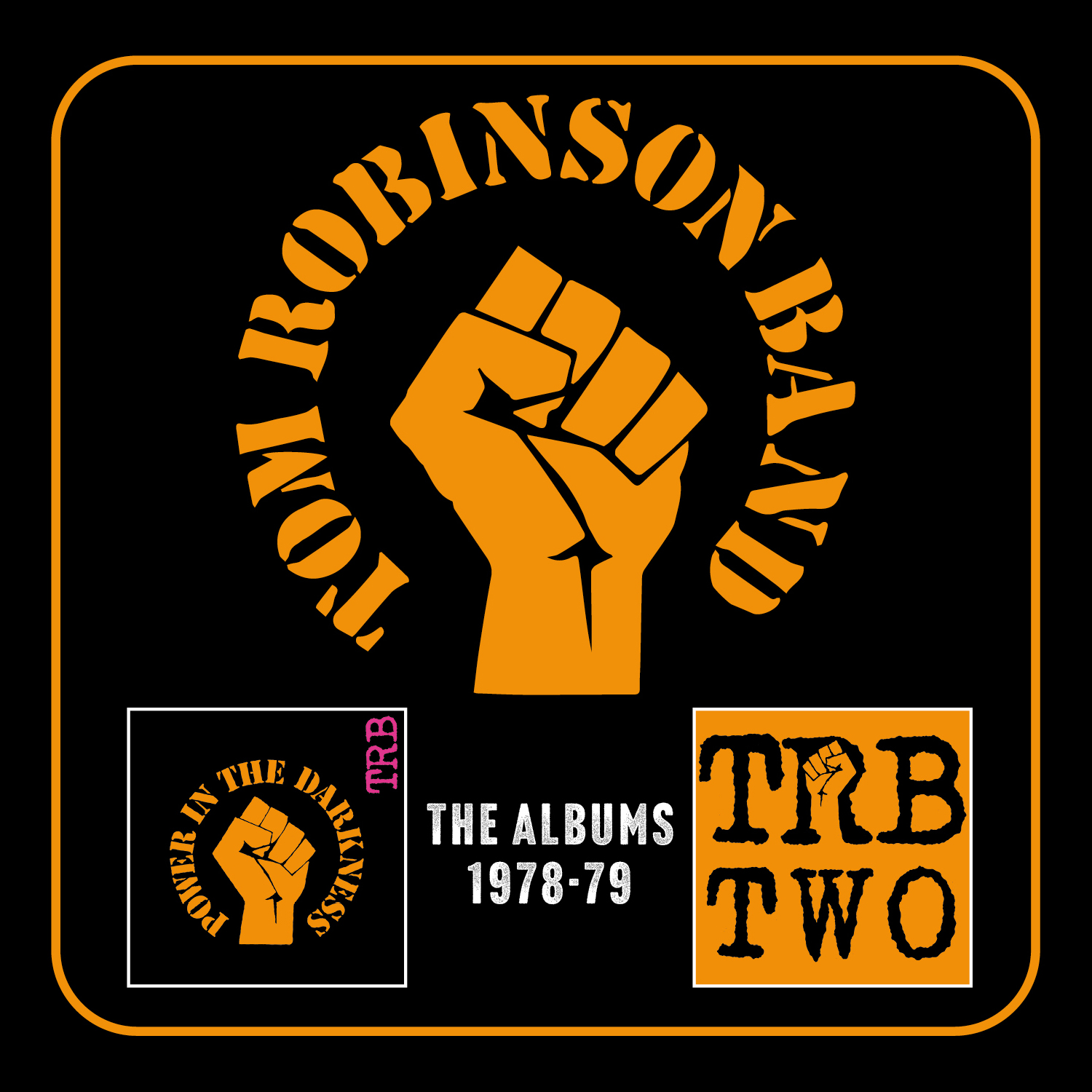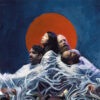Tom Robinson is one of music’s veterans. Described as “…musically active…”, he hosts a number of shows on 6Music, as well as performing as a musician on the live circuit. Established in 1976, by the same singer/songwriter and bassist, the Tom Robinson Band’s debut single ‘2-4-6-8 Motorway’ was a UK top 5 single in October 1977. This would prove to be their highest chart placing, their follow-up ‘Rising Free’ (EP) of February 78, only reaching number 18. This did feature the rallying cry track ‘(Sing If You’re) Glad To Be Gay’, but, as their previous hit single was excluded from the debut album and is something that Robinson still rues what he calls the “fatal mistake” of omitting the band’s most famous songs. Here we find their two albums, Power In The Darkness and TRB Two, assembled as they were released, but as always Cherry Red has righted these wrongs, as well as adding some must hear recordings.
The band’s third single, ‘Up Against The Wall’ leads Power In The Darkness and is a heartfelt tale of living life in the late ’70s. He sings “Consternation in Brixton/Rioting in Notting Hill Gate Fascists marching on the High Street/Carving up the welfare state,” a song charged with political leaning, but this was something that was needed to balance out the changes being enacted in Parliament. Proceeding through an edition which includes the original 10 tracks, finishing with what appears to be a personal tale, ‘Power In The Darkness’. This number concentrates on minorities in society and is filled with the spirit of the blues. What follows is a further nine tracks, starting with the ‘2-4-6-8 Motorway’, a classic if ever there were one and acts to redress its omission on the original release. ‘I Shall Be Released’ and ‘I’m Alright Jack’, are songs that display the band’s ability to cross genres, the first exhibiting tinges of Rod Stewart, although was actually written by Bob Dylan. The second is a jolly jaunt through the class system, with lyrics filled with references that will leave you howling. The rest of this album sees live versions displaying TRB’s eloquence and popularity when performing on the live stage. Numbers from ‘Don’t Take No For An Answer’, to the song that will be the writer’s epitaph ‘(Sing If You’re) Glad To Be Gay’, through ‘Martin’ and onto another rallying cry in ‘Right On Sister’. Then to a song that told of the difficulties during the ‘Winter Of ’79’, a live version of ‘I’m Alright Jack’, culminating with ‘Waiting For My Man’. A cover of the Lou Reed song, in a style reminiscent of the Blues Brothers, a film which was to be released two years later. Obviously not a patch on the original, but I don’t think comparisons should be drawn, just performing for the sake of performing being foremost.
Next on the menu is the Tom Robinson Band’s second and final studio album TRB Two. Still politically driven, these songs display the same social commentary, but unlike the debut personally I didn’t find these to be as engaging. Some of the tunes do bear parallels to artist Randy Newman; I’m not suggesting there is anything wrong with Newman, though. For television compositions and more popular themes, this is fine, but for the snarling punk of activist Robinson, they fall a little flat. Following on from the album, a further eight tracks are presented and display a little more impact.
The number ‘Never Gonna Fall In Love (Again)’, places the storyteller in the position of a fox and is really quite amusing, a 12” version is featured. Rounding off proceedings, the original demo version of ‘2-4-6-8 Motorway’ has been included. A version that would not have reached the chart place of the original, but is nice to hear the genesis of the song. On this second album, perhaps there is too much use of synthesiser and no studio recording of ‘(Sing If You’re) Glad To Be Gay’, which might be considered an own goal. However, I love Tom’s artwork on the original album, and his songwriting prowess cannot be denied. Having played a number of live shows in early June this year and further shows scheduled for early October, it’s nice to see that his work behind a radio mic hasn’t dulled his wish to perform.




